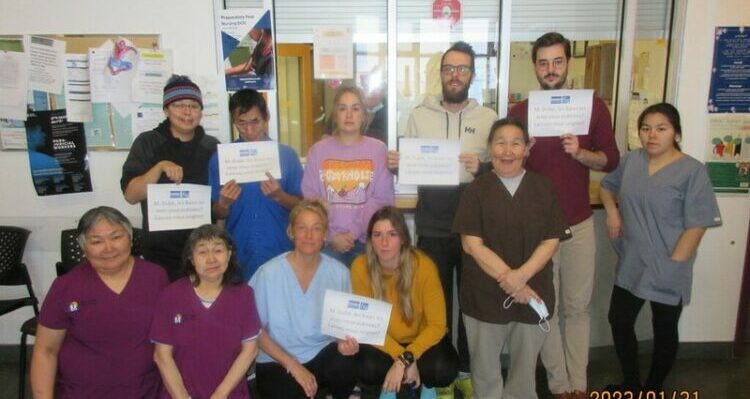
The FIQ obtains improved working conditions for healthcare professionals working in the Far North
The Fédération interprofessionnelle de la santé du Québec–FIQ makes a significant gain for healthcare professionals who work in the Far North, more specifically for Nunavik. “The situation has been critical for months both in Hudson Bay and Ungava Bay. Healthcare professionals who work there have been denouncing the lack of healthcare professionals. They are overloaded, exhausted and were no longer in a position to offer safe, quality care. They mobilized over the last few months and the Quebec government finally heard them. Their working conditions will be improved starting now. It’s good news for healthcare professionals, as well as for people who live in these communities,” explained Julie Bouchard, FIQ President.
Remember that the Far North is dealing with a major workforce shortage and certain conditions were urgently needed to attract healthcare professionals to Nunavik. There is an agreement with the government that northern leaves without pay for healthcare professionals who work in the south and who would like to work up north will now be granted almost automatically. “Employers of healthcare institutions in the south will no longer be able to refuse them for any reason, as is currently the case. Conditions for obtaining this leave will be largely reduced, made nearly inexistent, so that more healthcare professionals can access it,” explained Jérôme Rousseau and Nathalie Levesque, Vice-Presidents and Joint Political Officers for negotiations.
Increased attraction amounts
Healthcare professionals who go work in the Far North have access to attraction premiums that hadn’t been updated since 1999. The FIQ reached an agreement on a significant premium increase, which will also be adjusted annually based on the salary increases stipulated in the collective agreement. “These premiums will undergo more than a 46% catch up. That is a significant monetary incentive that will finally compensate for some of the inconveniences that come with working in a very remote territory. It will undoubtedly boost attraction for those interested in working in Nunavik,” added Ms. Bouchard.
More trips out possible
The last important element on which the FIQ reached an agreement with the government was the number of trips out possible for healthcare professionals working up north who want to return south to visit family and friends. “A healthcare professional who asks for organization of work time in Nunavik will be entitled to six trips out per year, so more paid plane tickets. As it stands, the number of trips out was capped at four, which means that a healthcare professional could not work four weeks up north and return four weeks in the south. It’s an important detail that will improve the work-personal life balance for these healthcare professionals and provide more stability to the service offer in the Far North,” concluded Mr. Rousseau and Ms. Levesque.